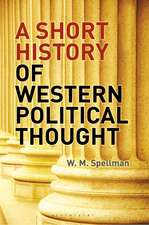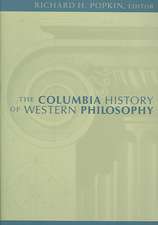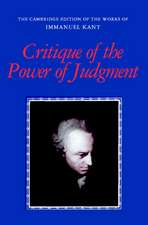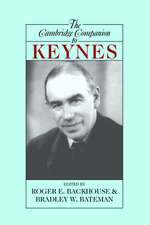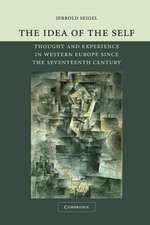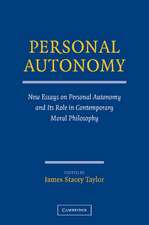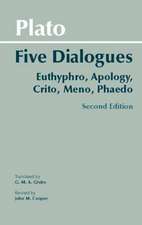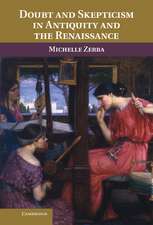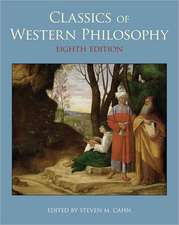Kant: Political Writings: Cambridge Texts in the History of Political Thought
Autor Immanuel Kant Editat de H. S. Reiss Traducere de H. B. Nisbeten Limba Engleză Paperback – 24 ian 1991
| Toate formatele și edițiile | Preț | Express |
|---|---|---|
| Paperback (7) | 64.75 lei 6-8 săpt. | |
| Hackett Publishing Company – 15 oct 1995 | 113.47 lei 3-5 săpt. | |
| Cambridge University Press – 24 ian 1991 | 178.53 lei 3-5 săpt. | +19.18 lei 5-11 zile |
| Cambridge University Press – 21 feb 2018 | 200.19 lei 3-5 săpt. | +15.69 lei 5-11 zile |
| Cambridge University Press – 3 oct 2017 | 201.25 lei 3-5 săpt. | +19.52 lei 5-11 zile |
| Cambridge University Press – 30 sep 2015 | 328.11 lei 3-5 săpt. | |
| A & D Publishing – 15 feb 2008 | 64.75 lei 6-8 săpt. | |
| Cambridge University Press – 15 sep 2004 | 280.15 lei 6-8 săpt. | |
| Hardback (6) | 130.97 lei 6-8 săpt. | |
| Hackett Publishing Company – 15 oct 1995 | 294.69 lei 3-5 săpt. | |
| A & D Publishing – 3 apr 2018 | 130.97 lei 6-8 săpt. | |
| Cambridge University Press – 15 sep 2004 | 537.80 lei 6-8 săpt. | |
| Cambridge University Press – 21 feb 2018 | 538.02 lei 6-8 săpt. | |
| Cambridge University Press – 11 oct 2017 | 591.76 lei 6-8 săpt. | |
| Cambridge University Press – 3 oct 2012 | 1036.27 lei 6-8 săpt. |
Din seria Cambridge Texts in the History of Political Thought
-
 Preț: 199.24 lei
Preț: 199.24 lei -
 Preț: 288.34 lei
Preț: 288.34 lei -
 Preț: 147.20 lei
Preț: 147.20 lei -
 Preț: 198.94 lei
Preț: 198.94 lei -
 Preț: 123.27 lei
Preț: 123.27 lei -
 Preț: 226.68 lei
Preț: 226.68 lei -
 Preț: 156.89 lei
Preț: 156.89 lei -
 Preț: 161.79 lei
Preț: 161.79 lei -
 Preț: 231.29 lei
Preț: 231.29 lei -
 Preț: 128.84 lei
Preț: 128.84 lei -
 Preț: 140.39 lei
Preț: 140.39 lei -
 Preț: 143.73 lei
Preț: 143.73 lei -
 Preț: 339.90 lei
Preț: 339.90 lei -
 Preț: 178.87 lei
Preț: 178.87 lei -
 Preț: 176.62 lei
Preț: 176.62 lei -
 Preț: 205.41 lei
Preț: 205.41 lei -
 Preț: 122.45 lei
Preț: 122.45 lei -
 Preț: 119.68 lei
Preț: 119.68 lei -
 Preț: 132.55 lei
Preț: 132.55 lei -
 Preț: 130.10 lei
Preț: 130.10 lei -
 Preț: 207.73 lei
Preț: 207.73 lei -
 Preț: 296.00 lei
Preț: 296.00 lei -
 Preț: 193.53 lei
Preț: 193.53 lei -
 Preț: 121.24 lei
Preț: 121.24 lei - 8%
 Preț: 467.18 lei
Preț: 467.18 lei -
 Preț: 209.16 lei
Preț: 209.16 lei -
 Preț: 199.24 lei
Preț: 199.24 lei -
 Preț: 124.33 lei
Preț: 124.33 lei -
 Preț: 177.82 lei
Preț: 177.82 lei -
 Preț: 192.75 lei
Preț: 192.75 lei -
 Preț: 116.10 lei
Preț: 116.10 lei -
 Preț: 101.03 lei
Preț: 101.03 lei -
 Preț: 208.69 lei
Preț: 208.69 lei -
 Preț: 188.94 lei
Preț: 188.94 lei -
 Preț: 183.45 lei
Preț: 183.45 lei -
 Preț: 135.71 lei
Preț: 135.71 lei - 14%
 Preț: 694.86 lei
Preț: 694.86 lei - 14%
 Preț: 732.13 lei
Preț: 732.13 lei - 11%
 Preț: 686.44 lei
Preț: 686.44 lei - 14%
 Preț: 767.93 lei
Preț: 767.93 lei - 14%
 Preț: 681.68 lei
Preț: 681.68 lei -
 Preț: 292.69 lei
Preț: 292.69 lei - 11%
 Preț: 664.20 lei
Preț: 664.20 lei
Preț: 178.53 lei
Nou
Puncte Express: 268
Preț estimativ în valută:
34.17€ • 35.54$ • 28.21£
34.17€ • 35.54$ • 28.21£
Carte disponibilă
Livrare economică 24 martie-07 aprilie
Livrare express 08-14 martie pentru 29.17 lei
Preluare comenzi: 021 569.72.76
Specificații
ISBN-13: 9780521398374
ISBN-10: 0521398371
Pagini: 323
Ilustrații: bibliography
Dimensiuni: 141 x 217 x 23 mm
Greutate: 0.5 kg
Ediția:Revizuită
Editura: Cambridge University Press
Colecția Cambridge University Press
Seria Cambridge Texts in the History of Political Thought
Locul publicării:Cambridge, United Kingdom
ISBN-10: 0521398371
Pagini: 323
Ilustrații: bibliography
Dimensiuni: 141 x 217 x 23 mm
Greutate: 0.5 kg
Ediția:Revizuită
Editura: Cambridge University Press
Colecția Cambridge University Press
Seria Cambridge Texts in the History of Political Thought
Locul publicării:Cambridge, United Kingdom
Cuprins
Preface to the second edition; Preface to the first edition; List of abbreviations; 1. Introduction; 2. Idea for a universal history with a cosmopolitan purpose; 3. An answer to the question: 'what is enlightenment?'; 4. On the common saying: 'this may be true in theory, but it does not apply in practice'; 5. Perpetual peace: a philosophical sketch; 6. The metaphysics of morals; 7. The contest of faculties; 8. Appendix; 9. Reviews of Herder's ideas on the philosophy of the history of mankind; 10. Conjectures on the beginning of human history; 11. Introduction to what is orientation in thinking?; 12. What is orientation in thinking?; Notes to the text; Bibliography; Index of names; Index of subjects.
Recenzii
"For new students of Kant's political philosophy, Reiss's new edition is very helpful in offering an accessible but thorough editorial introduction to Kant's political thought; a fairly comprehensive selection of Kant's political work; and an up-to-date, detailed bibliography." Canadian Philosophical Reviews
Descriere
This edition includes two important texts illustrating Kants's view of history along with notes and a comprehensive bibliography.
Notă biografică
Immanuel Kant ( 22 April 1724 - 12 February 1804) was an influential German philosopher[23] in the Age of Enlightenment. In his doctrine of transcendental idealism, he argued that space, time, and causation are mere sensibilities; "things-in-themselves" exist, but their nature is unknowable.[24][25] In his view, the mind shapes and structures experience, with all human experience sharing certain structural features. In one of his major works, the Critique of Pure Reason (1781; second edition 1787),[26] he drew a parallel to the Copernican revolution in his proposition that worldly objects can be intuited a priori ('beforehand'), and that intuition is therefore independent from objective reality.[b]
Kant believed that reason is also the source of morality, and that aesthetics arise from a faculty of disinterested judgment. Kant's views continue to have a major influence on contemporary philosophy, especially the fields of epistemology, ethics, political theory, and post-modern aesthetics. He attempted to explain the relationship between reason and human experience and to move beyond the failures of traditional philosophy and metaphysics. He wanted to put an end to what he saw as an era of futile and speculative theories of human experience, while resisting the skepticism of thinkers such as David Hume. He regarded himself as showing the way past the impasse between rationalists and empiricists,[28] and is widely held to have synthesized both traditions in his thought.[29]
Kant was an exponent of the idea that perpetual peace could be secured through universal democracy and international cooperation. He believed that this would be the eventual outcome of universal history, although it is not rationally planned.[30] The nature of Kant's religious ideas continues to be the subject of philosophical dispute, with viewpoints ranging from the impression that he was an initial advocate of atheism who at some point developed an ontological argument for God, to more critical treatments epitomized by Schopenhauer, who criticized the imperative form of Kantian ethics as "theological morals" and the "Mosaic Decalogue in disguise",[31] and Nietzsche, who claimed that Kant had "theologian blood"[32] and was merely a sophisticated apologist for traditional Christian faith







